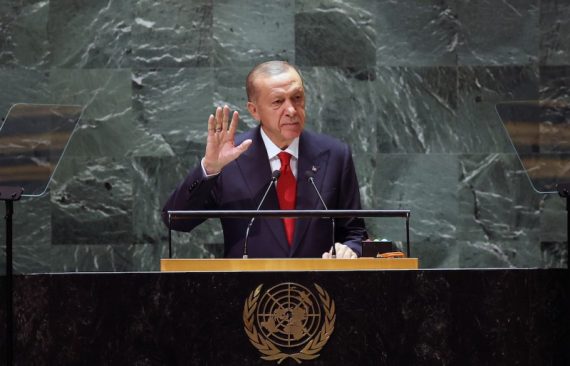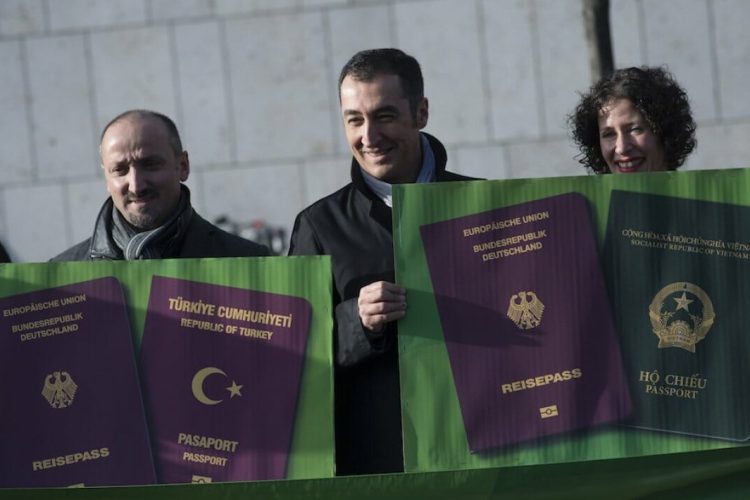T
here have long been calls for the reform of the United Nations (UN) on the grounds that it has failed to fulfill its peacekeeping mandate. Yet, some of the calls seem to be related to the agendas of certain countries that want to play a greater role in the decision-making mechanisms of the organization rather than to make the UN more effective in terms of its primary peacekeeping mission.
In this context, countries such as Germany, Japan, India, and Brazil aim to strengthen their positions by gaining permanent member status in the UN Security Council. On the other hand, countries like Turkey want a new structure that would ensure a fairer representation in the Security Council and facilitate decision-making.
To date, efforts at reform have not been successful. Let us examine the consequences of the failure of these efforts, and then consider why it will be very difficult to reorganize the UN. The most important consequence of the failure of any reform efforts to this day is the diminishing credibility of the United Nations as a peacekeeping body.
The problem is compounded by the fact that proposals to reform the Security Council’s decision-making mechanisms are not welcomed by the permanent members, who find the current structure advantageous. While massacres are taking place in Syria, Myanmar, Palestine, and Yemen, and countries like Iraq and Ukraine are being attacked in violation of international law, the organization remains silent.
The UN is rendered dysfunctional when decisions to intervene cannot be taken because one or more countries believe that such action would harm their interests in the region in question. Sometimes it is the United States, other times it is Russia or China that blocks intervention decisions that would end the massacres and establish peace.
In other cases, as in Iraq and Ukraine, the United States and Russia are the direct aggressors. When the veto-wielding countries of the Security Council are on the aggressor’s side, the UN cannot use military intervention or other sanctions, which are its most effective weapons in the peacekeeping mission.
The decision-making mechanism must change
Everyone knows that these shortcomings can only be addressed by changing the Security Council’s decision-making mechanism. More countries need to be included in UN resolutions on military intervention and other sanctions, and the vetoing of such resolutions by a single country must not be permitted. The way to do this is to give member states a “weighted vote” based on their economic and military size.
There is a need for a new decision-making mechanism in which the U.S. and Vanuatu would not have the same voting weight, but the U.S. would not be able to veto all resolutions it does not want. This can be done either under the auspices of the Security Council by increasing the number of members or under the auspices of the General Assembly by transferring the authority to take sanction decisions.
For example, the decision for UN intervention in Syria, which could not be taken at the Security Council, could easily have been taken at the General Assembly with a two-thirds or three-fourths majority through a weighted voting system. In this way, this tragedy, in which more than 600,000 people have lost their lives and 13 million people have lost their homes and became refugees, could have been prevented. However, because the permanent members of the Security Council do not want to lose their current privileged position, the reform that would enable the UN to take rational and effective decisions cannot be realized. The discussions under the name of reform do not go beyond the issue of increasing the number of permanent members in the Security Council.
Explaining the UN reform
If we try to explain why UN reform is not possible with the basic concepts of international relations, we see that reform is not likely to be possible in the near future either. Because, although the establishment of the UN was a product of the desire to prevent the world from being dragged into a catastrophe such as World War II—in other words, the intention to solve problems through “law and diplomacy” instead of “force and conflict”—when we look at the structure of the organization established for this purpose, we see that it reflects the “balance of power” of that period.
The countries that emerged victorious after World War II allocated a special position for themselves in the United Nation’s decision-making mechanisms. In order to reform the UN, which was designed by the powerful actors of the time to reflect their power and protect their interests, the balance of power must change. In other words, countries that want to play a more active role in the UN must surpass the permanent members of the Security Council in terms of all elements of power, especially economic and military power.
Yet, when we look at how the balance of power between the countries demanding reform and the permanent members of the Security Council has changed since the end of the Cold War in 1990, we see the opposite picture.
In 1990, the GDP of the seven countries demanding reform, which are currently among the top 12 in terms of economic capacity (we can refer to them as R7), was 77.5% of the total GDP of the five permanent members of the Security Council in purchasing power parity (PPP). By 2022, this ratio had fallen significantly to 55.4%.
Recommended
UN reform and the realities of global politics
In terms of military expenditures, another important indicator of power, the picture is much worse for the countries demanding reform. While the military expenditure of R7 countries reached 28% of P5 countries in 1990, this ratio dropped to 18.6% in 2022. Again, while the contribution of R7 countries to the UN budget was higher than that of P5 countries in 1990, it dropped to 45.2% in 2022.
The demands for reforming the UN, which has failed miserably to fulfill its peacekeeping mandate, are extremely justified. In particular, decisions on sanctions against countries that violate international law should be freed from the permanent members’ stranglehold. Yet, the basic principles of international relations dictate that power will be the main determinant in changing the structure of this organization—the same way, power was the main determinant in its establishment and is reflected in its structure.
Therefore, the reform demands of the permanent members of the Security Council whose economic and military capacities have declined over the last 30 years do not find much response in the face of the realities of global politics. Currently, we are faced with a UN that serves the interests of the global system’s powerful actors and, to a large extent, is therefore unable to fulfill its mandate of peacemaking and peacekeeping.






